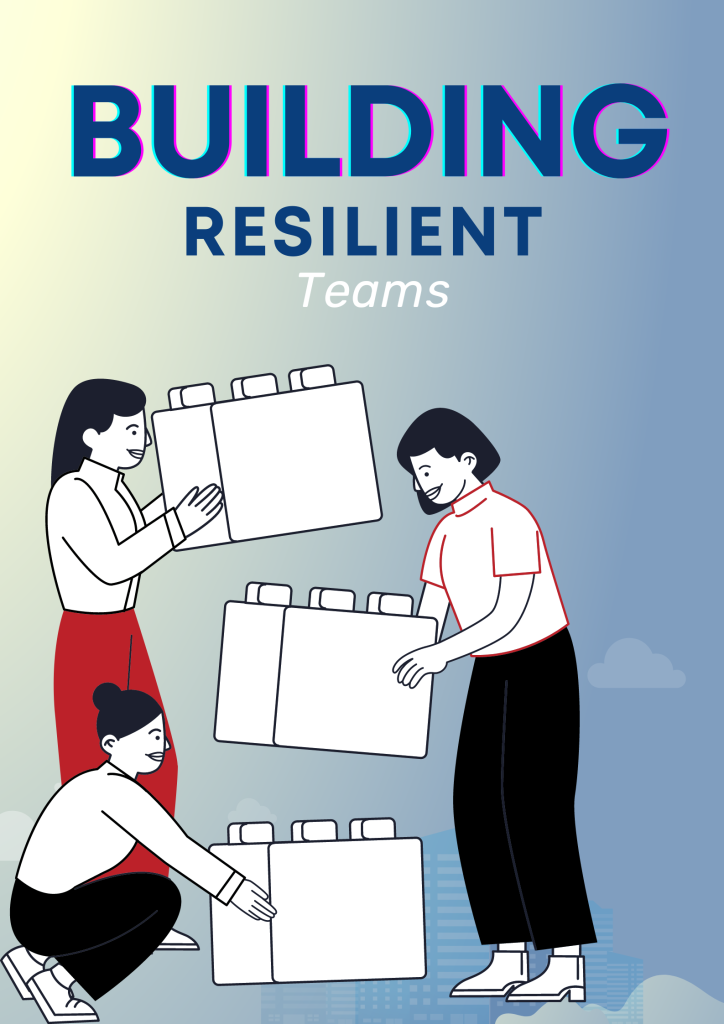Building Resilient Teams: HR Strategies for Thriving in Times of Change

Introduction: In today’s fast-paced and unpredictable business environment, the ability to adapt to change is essential for organisational success. HR professionals play a crucial role in cultivating resilience within teams, enabling them to navigate challenges effectively and thrive amidst uncertainty. In this article, we’ll explore key HR strategies for building resilient teams that can withstand change and emerge stronger.
Fostering Psychological Safety: Define psychological safety as the foundation for resilience, where team members feel safe to take risks, share ideas, and express concerns without fear of retribution. Discuss HR initiatives for fostering psychological safety, such as promoting open communication, encouraging feedback, and creating a supportive work culture. Highlight the role of HR in addressing barriers to psychological safety, such as hierarchical structures, fear of failure, and lack of trust.
Cultivating Adaptability: Emphasise the importance of adaptability in building resilience, as teams that can quickly pivot and adjust to changing circumstances are better equipped to overcome challenges. Explore HR strategies for cultivating adaptability within teams, including cross-training, skill development programmes, and agile work practices. Discuss the role of HR in promoting a growth mindset among team members, encouraging them to embrace change as an opportunity for learning and growth.
Promoting Collaboration and Teamwork: Highlight the role of collaboration and teamwork in fostering resilience, as teams that work cohesively can better support each other and overcome obstacles together. Discuss HR initiatives for promoting collaboration, such as team-building activities, virtual collaboration tools, and fostering a sense of camaraderie among team members. Explore the role of HR in facilitating effective team communication, setting clear goals, and fostering a culture of accountability and support.
Providing Support and Resources: Recognise the importance of providing support and resources to help teams cope with stress, uncertainty, and adversity. Discuss HR strategies for providing support, such as offering employee assistance programmes, mental health resources, and flexible work arrangements. Highlight the role of HR in identifying and addressing potential sources of stress or burnout within teams, and providing resources to help team members manage their workload effectively.
Celebrating Success and Learning from Failure: Emphasise the importance of celebrating successes and learning from failures as opportunities for growth and development. Discuss HR initiatives for recognising and rewarding team achievements, and fostering a culture of appreciation and recognition. Explore the role of HR in promoting a culture of continuous improvement, where teams are encouraged to reflect on their experiences, learn from mistakes, and apply lessons learned to future challenges.
Conclusion: Building resilient teams is essential for navigating the complexities of today’s business landscape. By fostering psychological safety, cultivating adaptability, promoting collaboration and teamwork, providing support and resources, and celebrating success and learning from failure, HR professionals can play a pivotal role in building teams that are equipped to thrive in times of change. Let’s empower our teams to embrace challenges, adapt to change, and emerge stronger than ever before.



